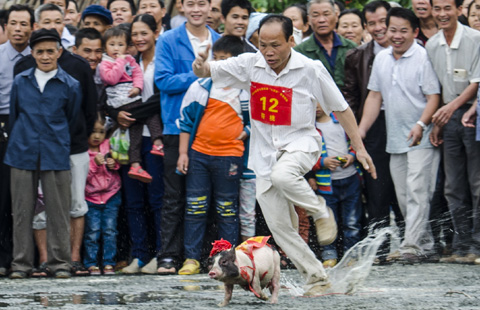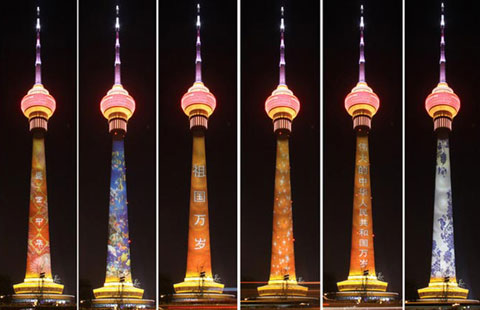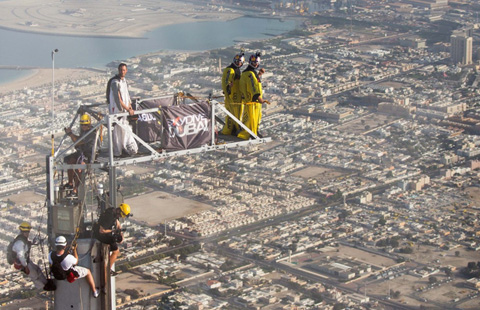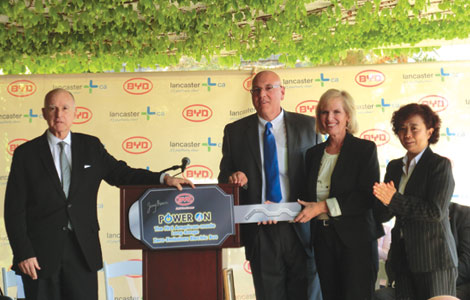Backgrounder: Most influential figures in Iraq's politics
Updated: 2014-04-30 16:19
(Xinhua)
|
||||||||
Deputy Prime Minister Salih al-Mutlak
Al-Mutlak was born in Fallujah of Iraq's western Anbar province in 1947. He was an active member of the Ba'ath Party, but was expelled in 1977 after criticizing the government. He was one of the three deputy prime ministers of Iraq since 2010.
Al-Mutlak leads the Al-Arabiya Coalition to participate in this year's elections. The Arab nationalist bloc's supporters are from Sunni-majority areas, but its influence declines in Anbar where many people think al-Mutlak is close to the prime minister.
Kurdish Regional President Masoud Barzani
Born in Mahabad, Iran, in 1946, Barzani is a leading Kurdish statesman. He succeeded his father, prominent Kurdish nationalist leader Mustafa Barzani, as the head of the Kurdistan Democratic Party in 1979. He has been president of the autonomous Kurdish region in Iraq since 2005.
As leader of the largest Kurdish political party, Barzani is expected to be a highly influential player in Iraq's post-election politics.
Former Prime Minister Ayad Allawi
Allawi was born in Iraq's capital city of Baghdad in 1945. A prominent Iraqi political activist who lived in exile for almost 30 years, the secular Shiite Muslim came back to Iraq following the US-led invasion in 2003. He was prime minister of Iraq's interim government from June 2004 to April 2005.
The Iraqiya List, a cross-sectarian alliance led by Allawi, came first in the 2010 elections but failed to form a government. With the breakdown of the Iraqiya List, Allawi leads a much smaller National Coalition to participate in this year's elections.
Muqtada al-Sadr
Al-Sadr is a prominent Shiite political leader in Iraq and head of the Islamist populist Sadrist Movement. He was born in Najaf, south Iraq, in 1974. After the fall of the Saddam government in 2003, Sadr came out as an anti-US political leader whose military wing Mehdi Army used to engage in violent conflicts with the US and other coalition forces.
In February 2014, al-Sadr suddenly announced that he has withdrawn from politics and closed his political offices. But the Ahrar Coalition, mostly consisting of followers of the Sadrist Movement, continues to run in the elections.
Former Prime Minister Ibrahim al-Jaafari
Al-Jaafari was born in Karbala, south Iraq, in 1947. He became an active member of the Islamic Dawa Party before he fled the country in 1980 to take refuge in Iran and Britain. He came back to Iraq as a leader of the party after the US-led invasion in 2003. He was prime minister in Iraq's Transitional Government from May 2005 to April 2006.
In 2008 al-Jaafari launched a Shiite-Islamic-based party called the National Reform Movement and was expelled from the Islamic Dawa Party. He leads the National Reform Alliance to participate in this year's elections.

 Trees provide surface for 3D images
Trees provide surface for 3D images
 Climbing skyscraper in Kiev with no safety equipment
Climbing skyscraper in Kiev with no safety equipment
 London tube strike gets under way
London tube strike gets under way
 Fast-pacing piglets in S China
Fast-pacing piglets in S China
 Top 10 amazing places in Beijing for night-view
Top 10 amazing places in Beijing for night-view
 Service honored
Service honored
 You can't change your mind now
You can't change your mind now
 BYD unveils first electric commuter bus in California
BYD unveils first electric commuter bus in California
Most Viewed
Editor's Picks

|

|

|

|

|

|
Today's Top News
Forum trends: Chinese foods you must not miss
Obama's Asia trip fails to achieve goals, experts say
US sanctions raise concerns
Xi calls for anti-terror tools
High score: Xbox One to hit China
Geffen interested in buying Clippers
Russia's FM scolds West for imposing sanctions
Putin declines tit-for-tat sanctions against West
US Weekly

|

|







